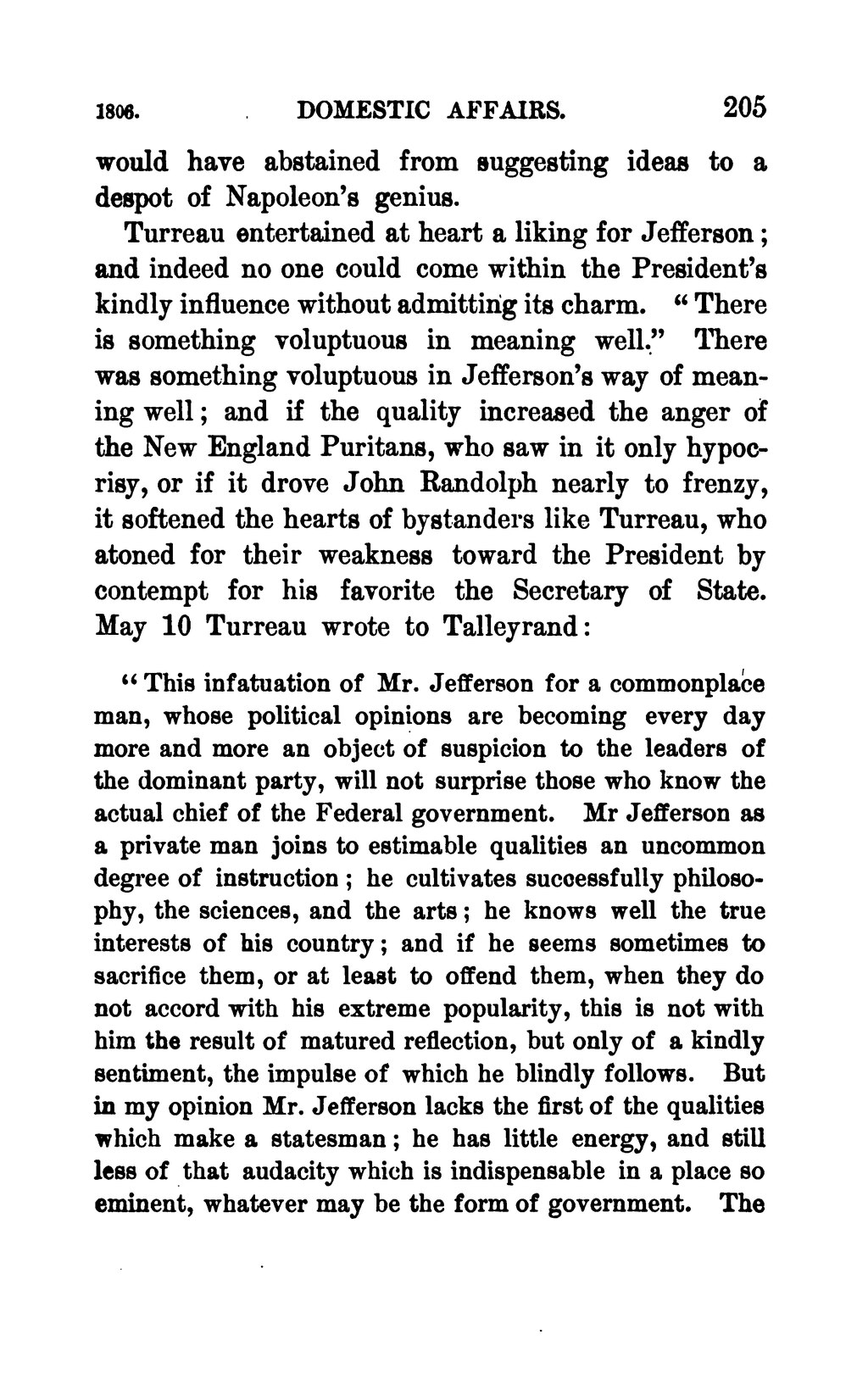1806.
DOMESTIC AFFAIRS.
205
would have abstained from suggesting ideas to a despot of Napoleon's genius.
Turreau entertained at heart a liking for Jefferson; and indeed no one could come within the President's kindly influence without admitting its charm. "There is something voluptuous in meaning well." There was something voluptuous in Jefferson's way of meaning well; and if the quality increased the anger of the New England Puritans, who saw in it only hypocrisy, or if it drove John Randolph nearly to frenzy, it softened the hearts of bystanders like Turreau, who atoned for their weakness toward the President by contempt for his favorite the Secretary of State. May 10 Turreau wrote to Talleyrand:
- "This infatuation of Mr. Jefferson for a commonplace man, whose political opinions are becoming every day more and more an object of suspicion to the leaders of the dominant party, will not surprise those who know the actual chief of the Federal government. Mr. Jefferson as a private man joins to estimable qualities an uncommon degree of instruction; he cultivates successfully philosophy, the sciences, and the arts; he knows well the true interests of his country; and if he seems sometimes to sacrifice them, or at least to offend them, when they do not accord with his extreme popularity, this is not with him the result of matured reflection, but only of a kindly sentiment, the impulse of which he blindly follows. But in my opinion Mr. Jefferson lacks the first of the qualities which make a statesman; he has little energy, and still less of that audacity which is indispensable in a place so eminent, whatever may be the form of government. The
